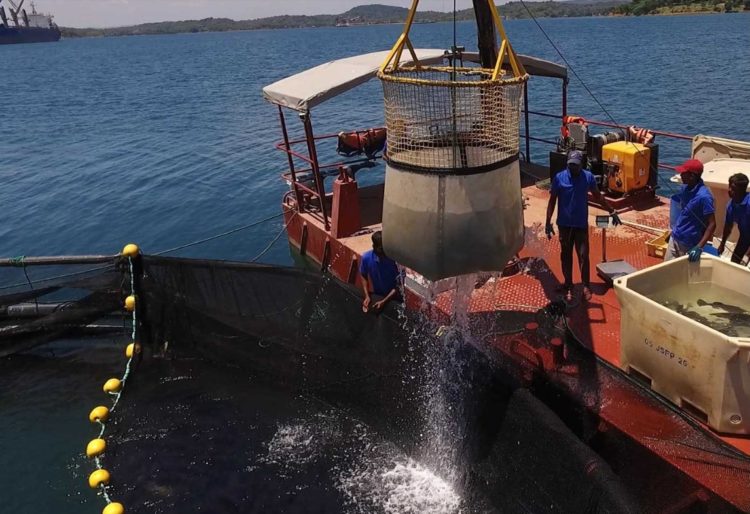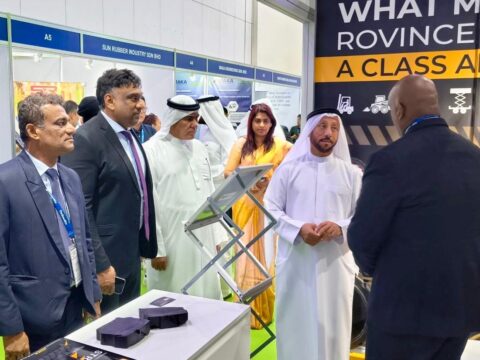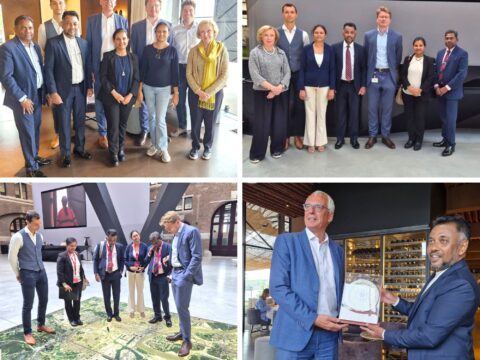COLOMBO, January 2020: Oceanpick, Southeast Asia’s first and only commercial producer of ocean-grown barramundi (Lates calcarifer) is scaling up operations in response to growing global demand for its fish.
Barramundi, also known as Asian sea bass, and locally referred to as Modha, is gaining popularity fast around the globe, with sales developing in the United Kingdom, the United States, Australia, South Asia, and the Middle East, Oceanpick Head of International Sales and Marketing Jacqueline Perera was quoted as saying in a report in SeafoodSource, a leading international news website for seafood industry professionals,
Its customers are predominantly in the foodservice sector, but Oceanpick also supplies Sri Lankan airlines, supermarkets, and the wholesale market, Perera noted. The company recently entered a relationship with a major retailer in the U.K., and initial sales are encouraging.
 “We have been delighted with the level of interest in our ocean-grown barramundi. Feedback from customers shows that they especially appreciate its distinctive taste, which is different from the local modha barramundi grown in brackish water,” Perera said.
“We have been delighted with the level of interest in our ocean-grown barramundi. Feedback from customers shows that they especially appreciate its distinctive taste, which is different from the local modha barramundi grown in brackish water,” Perera said.
The native species of Barramundi is widely distributed in the Indo-West Pacific region from the Persian Gulf, through Southeast Asia to Papua New Guinea and Northern Australia. Strong currents and superior water quality off the coast of northeast Sri Lanka, where the company’s fish are grown, enable the firm to produce superior barramundi that commands a premium in international markets, Perera said. In those markets, the company’s barramundi is sold under the Oceanpick brand, while locally, the fish are marketed as Round Island Barramundi, named after a local landmark island.
When Oceanpick started in 2012, Irfan Thassim, the firm’s pioneering founding director, turned to Kames Fish Farming in Scotland to help him realise his vision of being the first ocean farming operation in Sri Lanka. Kames initially provided the cages and expertise, and a lasting business and joint-venture relationship soon developed.
“It has been exciting to work with Irfan Thassim and his team, pioneering the production of barramundi in the ocean off the shores of Sri Lanka. It takes time and dedication to solve the challenges, but Oceanpick is now well established to allow the production to steadily increase and provide the demands of a growing market,” Kames Managing Director Stuart Cannon said. Thassim noted that the location of the fish farm off the northeastern coast of Trincomalee, is vital to the quality and purity of its produce.
“Trincomalee is home to the world’s second-largest natural harbor and has remained free of mega-scale industrial activities that are typical of some other farming locations in Asia. And when sustainable Scottish farming practices are conducted in such a pristine location, what results is a truly world-class product,” Thassim said.

As Sri Lanka’s first ever oceanic farm for finfish, Oceanpick has developed its operations steadily over the past eight years, , increasing the number of staff from 10 to 60 – more than two-thirds of whom work on the farms and in the hatchery.
Oceanpick’s barramundi are fed by hand, which is more labor-intensive than automated processes and allows staff to constantly monitor the performance and progress of the fish, while also ensuring less waste of feed.
The producer’s land-based hatchery and nursery are located close to the sea sites, which facilitated the rapid transfer of more than 500,000 fingerlings out to the cages in 2019. As a result, from August 2020 onwards, the company will be able to offer on-demand harvest, with uninterrupted supplies.
The barramundi farm achieved Best Aquaculture Practices (BAP) certification in 2019m, and the company intends to undergo certification for the hatchery in 2020 to make the operation fully integrated.
“We are extremely proud to be officially BAP-certified. This achievement puts us on par with other international responsible farming organizations, and in doing so, also helps to place Sri Lanka firmly on the global aquaculture map,” Thassim said.
According to Perera, it takes one year to 18 months to grow the fish to market size, depending on customer requirements – Oceanpick is currently selling 1- to 1.5-kilogram fish on the local and export markets. From 2020 onwards, larger fish at 1.5 to 2 kilograms will also be available from the firm.
Fish harvested by Oceanpick are immediately put into slurry ice to maintain the cold chain, and are processed and frozen, or packed fresh for sale, within three to four hours of harvest at a local British Retail Consortium (BRC)-accredited plant. The fish are available as whole gutted, fillets, and portions, with skin-on fillets being the most popular product, according to Perera.
“There is a distinct split in the market, with the U.S., U.K., and Australia predominantly taking frozen fish, and South Asia, Southeast Asia, and the Middle East ordering fresh product. However, our focus for the immediate future is to target the frozen market for large volumes through wholesalers and big box retailers,” she said.
In growing the market, the company has found Seafood Expo North America (SENA) in Boston, Massachusetts, U.S.A. and Seafood Expo Global (SEG) in Brussels, Belgium, for 2020 (and then Barcelona, Spain for 2021) to be invaluable. Oceanpick plans on having a booth at SENA 2020, it said.
Looking to the future, Perera said that production of other species beyond barramundi – including grouper and snapper – is in the pipeline.
“We are looking towards maximizing our opportunities in the export market and impacting the way in which the world sources premium seafood,” Perera said.
Oceanpick focuses on responsible farming that is highly sustainable, to produce high quality seafood without compromising on taste or natural nutrients. It eliminates the pressure on wild stocks in and around the marine waters of the island, while changing and revolutionizing the way Sri Lanka sources its fish.
As per FAO statistics, nearly 50 percent of fish production world wide comes from farmed sources, where as Sri Lanka lags far behind in reaching a sustainable equilibrium and relies 90% or more in wild capture, thus risking depletion of wild stocks beyond sustainable levels in the longer run. Oceanpick hopes its endeavors will trigger a change that will lead Sri Lanka in the direction of reaching a more equitable balance.





Good for Sri Lanka.